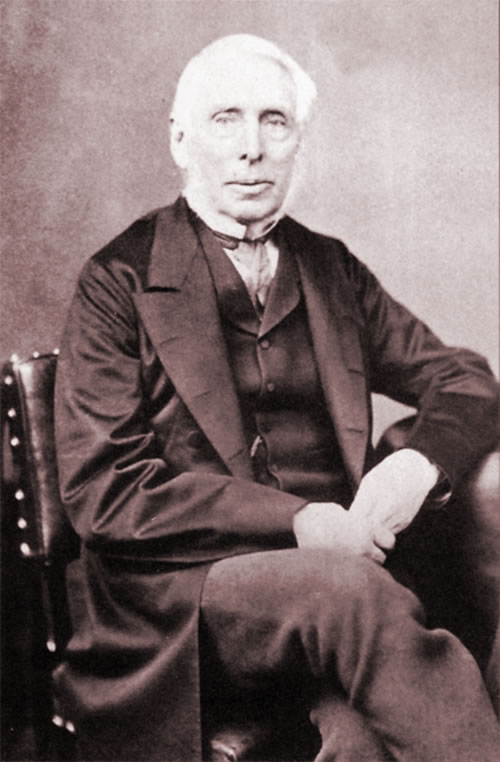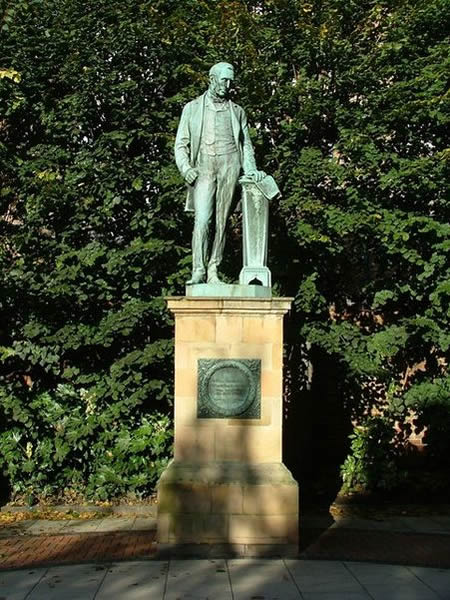Michael Thomas Bass II (1799 – 1884)
 Bass was born in Burton upon Trent in 1799, the son of Michael Thomas Bass (senior) who had expanded the Bass brewery founded by his father William Bass in 1777 and made it a major exporter to Russia. His mother, Sarah Hoskins, was the daughter of Abraham Hoskins, a prominent lawyer of Burton.
Bass was born in Burton upon Trent in 1799, the son of Michael Thomas Bass (senior) who had expanded the Bass brewery founded by his father William Bass in 1777 and made it a major exporter to Russia. His mother, Sarah Hoskins, was the daughter of Abraham Hoskins, a prominent lawyer of Burton.
Bass attended the grammar school in Burton upon Trent and finished his schooling in Nottingham. At the age of 18, he joined the family business as an apprentice when business was not going well because the Napoleonic Wars had disrupted trade with Russia. However, the sales of India Pale Ale in India and southeast Asia were taking off by the 1820s.
Bass took over control of the company in 1827 and continued the export focus on Asia. By 1832-33, the company was exporting 5,000 barrels of beer representing 40% of its output in that year
The coming of the railway to Burton upon Trent in 1839 helped the growth of the business by reducing transport costs. The company had four agents in the 1830s in London, Liverpool, Stoke-on-Trent and Birmingham. By the 1880s, this had grown to 21 in the United Kingdom and another in Paris. The export trade was supplied by the agencies in London and Liverpool.
Under Bass’s leadership, company production and sales had grown enormously. Production of ale had grown to 340,000 barrels in 1860 and to almost a million barrels in the late 1870s. By 1881, the company had three breweries and 26 malthouses covering 145 acres (0.59 km2) in Burton upon Trent. The company was Britain’s biggest brewery and was one of its best known companies.
Bass was first elected as the member for Derby in 1848 and served until 1883. His obituary in the Brewers Journal stated that he was known more “in the House of Commons for his regular attendance than for any feats of oratory.” He focussed on being a national advocate for the brewing industry against efforts by nonconformists within the Liberal Party to legislate against alcohol.
Bass was an orthodox Liberal supporting free trade, low taxes and improving living standards for the working class. He promoted legislation to abolish imprisonment for small debtors. His legislation against organ grinders on the grounds that they were street nuisances was less successful.
He was known as a philanthropist both in Burton upon Trent and Derby. His obituarists claimed that his contributions totalled £80,000 and that he had given Derby a new library, School of Art, recreation ground, and swimming baths.
Bass represented Derby until the final years of his life. William Ewart Gladstone offered Bass a peerage which he declined preferring to stay in the House of Commons.


